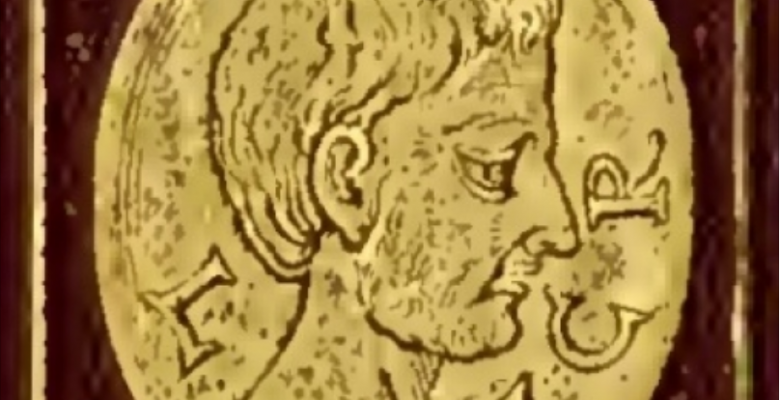Lucretius Today Podcast Episode 227 Is Now Available
Welcome to Episode 227 of Lucretius Today. This is a podcast dedicated to the poet Lucretius, who wrote “On The Nature of Things,” the most complete presentation of Epicurean philosophy left to us from the ancient world. Each week we walk you through the Epicurean texts, and we discuss how Epicurean philosophy can apply to you today. If you find the Epicurean worldview attractive, we invite you to join us in the study of Epicurus at EpicureanFriends.com, where you will find a discussion thread for each of our podcast episodes and many other topics.
We are now discussing the Epicurean sections of Cicero’s “On the Nature of The Gods,” and this week we introduce the Epicurean spokesman Velleius, beginning in Section 8
For the main text we are using primarily the Yonge translation, available here. The text which we include in these posts is the Yonge version, the full version of which is here at Epicureanfriends. We will also refer to the public domain version of the Loeb series, which contains both Latin and English, as translated by H. Rackham.
Additional versions can be found here:
Frances Brooks 1896 translation at Online Library of Liberty
Lacus Curtius Edition (Rackham)
PDF Of Loeb Edition at Archive.org by Rackham
Gutenberg.org version by CD Yonge
Today’s Text
VII. Indeed, says I, I think I am come very seasonably, as you say; for here are three chiefs of three principal sects met together. If M. Piso was present, no sect of philosophy that is in any esteem would want an advocate. If Antiochus’s book, replies Cotta, which he lately sent to Balbus, says true, you have no occasion to wish for your friend Piso; for Antiochus is of the opinion that the Stoics do not differ from the Peripatetics in fact, though they do in words; and I should be glad to know what you think of that book, Balbus.
“I?” says he. I wonder that Antiochus, a man of the clearest apprehension, should not see what a vast difference there is between the Stoics, who distinguish the honest and the profitable, not only in name, but absolutely in kind, and the Peripatetics, who blend the honest with the profitable in such a manner that they differ only in degrees and proportion, and not in kind. This is not a little difference in words, but a great one in things; but of this hereafter. Now, if you think fit, let us return to what we began with.
With all my heart, says Cotta. But that this visitor (looking at me), who is just come in, may not be ignorant of what we are upon, I will inform him that we were discoursing on the nature of the Gods; concerning which, as it is a subject that always appeared very obscure to me, I prevailed on Velleius to give us the sentiments of Epicurus. Therefore, continues he, if it is not troublesome, Velleius, repeat what you have already stated to us. I will, says he, though this new-comer will be no advocate for me, but for you; for you have both, adds he, with a smile, learned from the same Philo to be certain of nothing. What we have learned from him, replied I, Cotta will discover; but I would not have you think I am come as an assistant to him, but as an auditor, with an impartial and unbiased mind, and not bound by any obligation to defend any particular principle, whether I like or dislike it.
VIII. After this, Velleius, with the confidence peculiar to his sect, dreading nothing so much as to seem to doubt of anything, began as if he had just then descended from the council of the Gods, and Epicurus’s intervals of worlds. Do not attend, says he, to these idle and imaginary tales; nor to the operator and builder of the World, the God of Plato’s Timæus; nor to the old prophetic dame, the Πρόνοια of the Stoics, which the Latins call Providence; nor to that round, that burning, revolving deity, the World, endowed with sense and understanding; the prodigies and wonders, not of inquisitive philosophers, but of dreamers!
For with what eyes of the mind was your Plato able to see that workhouse of such stupendous toil, in which he makes the world to be modeled and built by God? What materials, what tools, what bars, what machines, what servants, were employed in so vast a work? How could the air, fire, water, and earth pay obedience and submit to the will of the architect? From whence arose those five forms, of which the rest were composed, so aptly contributing to frame the mind and produce the senses? It is tedious to go through all, as they are of such a sort that they look more like things to be desired than to be discovered.
But, what is more remarkable, he gives us a world which has been not only created, but, if I may so say, in a manner formed with hands, and yet he says it is eternal. Do you conceive him to have the least skill in natural philosophy who is capable of thinking anything to be everlasting that had a beginning? For what can possibly ever have been put together which cannot be dissolved again? Or what is there that had a beginning which will not have an end? If your Providence, Lucilius, is the same as Plato’s God, I ask you, as before, who were the assistants, what were the engines, what was the plan and preparation of the whole work? If it is not the same, then why did she make the world mortal, and not everlasting, like Plato’s God?

